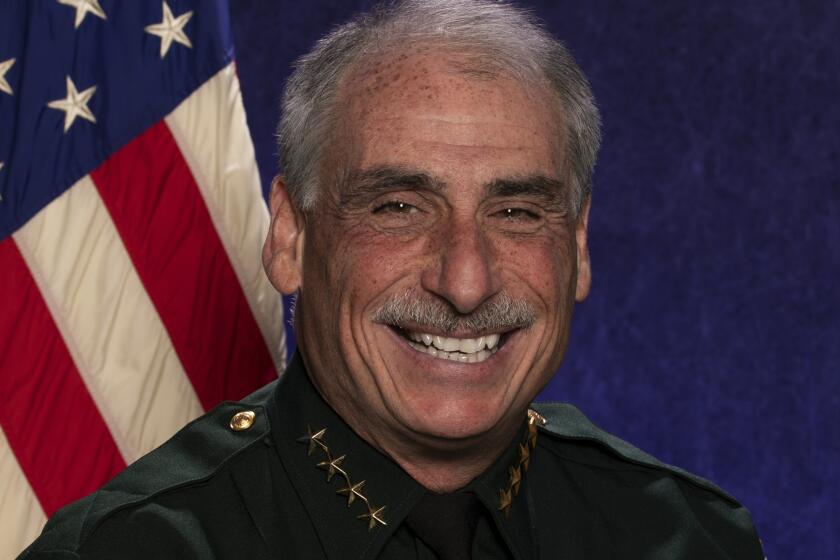New U.S. Envoy to Rethink Reconstruction
The new American ambassador to Iraq said Wednesday that he planned to rethink the troubled Iraq reconstruction program and would intensify U.S. efforts to help the country move toward stability.
Zalmay Khalilzad, who soon will begin his assignment as the top U.S. diplomat in Baghdad, told foreign journalists that he wanted to give Iraqis “greater control and responsibility” for the reconstruction effort at the same time that the U.S. adopted a more “proactive” approach in most other areas.
Khalilzad also said that he intended to begin talks with Iraqis about developing a schedule for reducing the U.S. troop presence there. But he cautioned that troop strength would be reduced only when Iraqi forces were prepared to take over. “We will not leave Iraq in the lurch,” he said.
His comments came amid signals that Washington was changing the course mapped out by former Ambassador John D. Negroponte, who had sought to give Iraqis the leading role and U.S. officials a supporting one. That approach left squabbling among Iraqi groups unresolved and led some Iraqi officials to urge the U.S. to assert its leadership.
The ambassador’s job has been vacant since April, when Negroponte was sworn in as the first U.S. director of national intelligence. Khalilzad’s swearing-in as ambassador and his arrival in Baghdad have been delayed by his ailments, including hospitalization for a respiratory illness.
Khalilzad said Iraq was different from Afghanistan, but he added, “I have a particular style and a particular approach. I will be proactive.”
Although he said he would prefer that Iraqi leaders settle problems themselves, he suggested that the Americans would not stand by if issues were not resolved. “Failure is not an option,” he said.
Khalilzad said he wanted to “take a look at the reconstruction program to ensure that we are not over-promising and under-delivering.”
Since the reconstruction program began two years ago, there have been complaints that although Iraqis were always consulted on major projects, American officials had too much influence.
Khalilzad would grant Iraqis greater control of reconstruction projects, one aspect of the stabilization effort, while continuing U.S. guidance. For instance, Khalilzad said he wanted to put a “higher priority on private-sector development.”
U.S. officials recently voiced concern that Iraq’s private sector remained weak, and they have been looking for ways to diversify it beyond the government-controlled oil sector.
Khalilzad also emphasized that he hoped to improve the training of Iraqi police. U.S. military officials have criticized the program, saying authorities have accepted too many unqualified recruits and have sometimes failed to prevent infiltration by insurgents.
The incoming ambassador said he intended to review all training programs for Iraqi security forces.
“I will specifically ensure that the police training program is based on a jointly developed U.S.-Iraqi plan that is recruiting and vetting candidates properly,” he said.
Khalilzad said the questions of when and how quickly to reduce U.S. forces would be “condition-driven.”
The composition of U.S. forces and their size may vary as conditions in the country change, he said, adding, “We will provide assistance that is needed for Iraq to be able to stand on its own feet.”
Khalilzad’s first goal will be to work with Iraqis to develop a “national compact,” laid out in a constitution, that would outline how power is shared among the country’s ethnic and religious groups. Iraqi leaders are working to draft a constitution by the Aug. 15 deadline.
The ambassador spoke at a time when U.S. officials have been concerned about Iraq’s slow pace of economic progress.
The Bush administration has been pushing, without success, for reforms, including in the government’s huge subsidies to Iraqis for food and energy. It has resisted Iraqi officials’ pleas that the U.S. make up for foreign aid that other countries have promised but not delivered.
More to Read
Sign up for Essential California
The most important California stories and recommendations in your inbox every morning.
You may occasionally receive promotional content from the Los Angeles Times.










